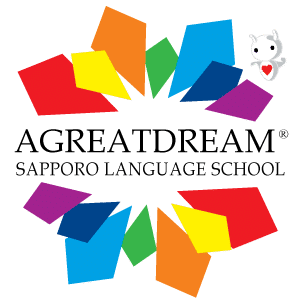口コミ:
翻訳:彼の授業は、生徒にとってとても楽しく、教え方も非常に上手でした。
松井 美穂 准教授
札幌市立大学
※札幌市立大学は以前、「札幌市立高等専門学校(デザイン学部、看護学部)」でした。
His way of teaching was very impressive and enjoyable to the students.
Miho Matsui
(PhD: American Literature)
Associate Professor, Sapporo City University
(Previously named Sapporo School of the Arts, Design and Nursing School)

【間違いやすい英文法】THE, A, AN の違い… 正しい冠詞の使い方
冠詞:
英単語:article
複数形:articles
冠詞とは何かということをご説明しましょう。英語には、“the”、 “a” 、 “an” の3種類の冠詞があります。これらの冠詞は名詞の前に使われます。
【aとanの違い】 Indefinite Articles
これらの冠詞は、具体的にどの名詞の話をしているのか特定できないので、不定冠詞と呼ばれています。例えば、“a vegetable”と言えば、どの野菜でもよいわけですし、特定のリンゴを選ばずに “an apple” を食べたいと言うこともできます。どちらの冠詞を使うのかを知る方法ですが、名詞が母音(”a”, “e”, “i” ,”o” or “u”の文字)で始まっていたら“an”を使いますし、子音で始まっている場合には“a”を使います。
例外:
母音の前に“an”、子音の前に“a”を使うという規則には、実はいくつかの例外があります。 “u”で始まる名詞でありながら“you”の発音をする場合には“a”を使います。 “I went to a university.” の例がそうです。そして、名詞が無音の“h”で始まるときには“an”を使います。“We have an hour before the movie starts.”の例がそうです。
The following word starts with a spoken consonant
a, e, i, o, or u
a lesson
a teacher
a girl
a unit
unit = yu + ni + t
The following word starts with a spoken vowel
an apple
an online lesson
an American woman
When to add articles
つける とき
Before Time & Measurements (per week/weekly)
オンラインレッスンを週5回行っています。
年に3回オーストラリアに行っています。
彼女のバイクは時速250キロで走れる。
りんご 1kgは4.00ドル ~ 5.00ドルです。
Before Jobs
私のお父さんはコンサルタントです。
With Noun Complements
彼はいい男だ。
Before Nationalities
スカーレット・ヨハンソンさんはアメリカ人です。
Half & Quite
半キロの小麦粉が必要です。
これはすごいレストランだ。
【the】Definite Article
これは定冠詞です。この冠詞を使うのは、ある特定のなにかについて話をするときです。例えば “I bought the vegetables” といえば、私が買った特定の野菜の話をしていることになります。
冠詞は名詞の前に使われますが、使用すべきときと、使用しなくてもよいときを区別することがとても大切です。
The following word starts with a spoken consonant
the girlthe homeworkthe schoolThe following word starts with a spoken vowel
the English girlthe orange markerthe old book【冠詞を使用しないとき】
Times You don’t Need an Article
【冠詞を使用するとき】
これで、 theとaとanの違いはばっちりでしょうか?冠詞を間違えるとネイティブスピーカーには不自然に聞こえてしまうので、ぜひ意識して使ってみてくださいね。
【便利な表現】
「Have a nice day.」
訳語: 良い日を
「I bought a lot.」
訳語: たくさん買った
【間違いやすい英文法】
bread, news, information, furniture, work, research and spaghetti.
Don’t use a with these nouns. Use some and do not make these nouns plural.
❌ Please buy a furniture.
❌ Please buy furnitures.
✅ Please buy some furniture.
We don’t use the for most countries names but we use the with countries that have words such as states, kingdom or republic in them.
❌ I’m from United States.
✅ I’m from the United States.
Don’t use the with languages.
❌ The Japanese isn’t an easy language to learn.
✅ Japanese isn’t an easy language to learn.
【クイズ】
Time's up
Grammar Quiz 2
1. We bought some cheese and ham. _____ cheese was delicious.
2. It’s _____ interesting book.
3. There was _____ document on the table.
4. Diane Vizthum, M.S., R.D., research nutritionist for Johns Hopkins University School of Medicine say that _____ coffee can be good for your health.
5. I don’t have _____ car but I want one.
6. Can you pass me _____ seaweed flakes?
7. _____ president visited Hokkaido.
8. My step-mother was _____ police officer.
9. Almost everybody knows that _____ cats are very independent animals.
10. They picked me up at _____ airport.
11. Do you want _____ bottle of milk?
12. _____ potentially effective treatment for atopic dermatitis is _____ honey.
不可算名詞(Uncountable Nouns)
The History of Articles / Origins
“the,” “a,” and “an” in English, are deeply intertwined with the development of languages, particularly Indo-European languages. Articles serve as a grammatical tool to indicate the definiteness and indefiniteness of a noun. Here’s an overview of the history and development of articles:
Ancient and Classical Periods
The Medieval Period
The Early Modern Period
The Modern Period
Linguistic Insights
Conclusion
The history of articles illustrates the dynamic and adaptive nature of language. Emerging from demonstrative pronouns in ancient languages like Greek, the concept of articles evolved significantly, shaping the way we specify and generalize nouns. The absence of articles in Classical Latin and their development in Romance and Germanic languages highlight the diverse paths languages can take. In English, articles like “the,” “a,” and “an” became standardized, influencing linguistic structures and communication clarity. The study of articles not only sheds light on language evolution but also enhances our understanding of human cognition and linguistic diversity. As languages continue to evolve, the role of articles remains a key aspect of how we convey meaning and navigate the complexities of grammar and syntax.